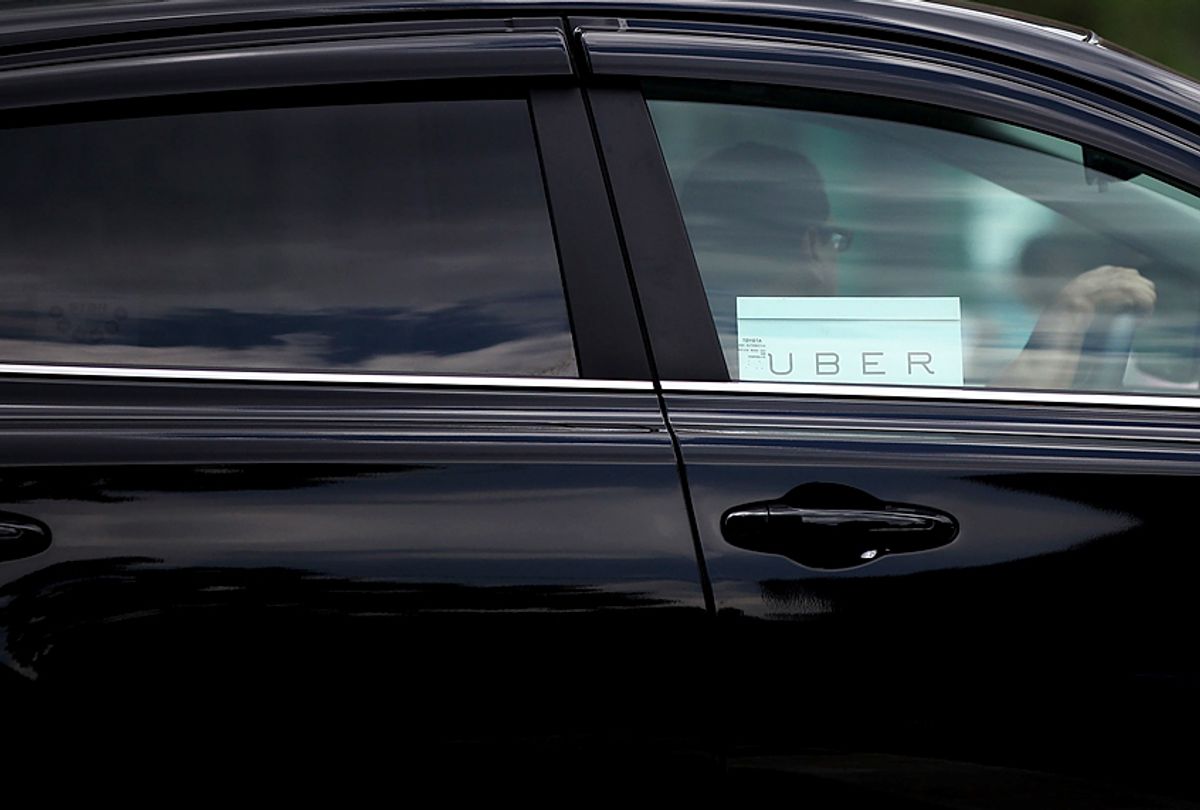The rideshare industry duopoly of Uber and Lyft are positioned to have a banner year. On March 28, Lyft went public at $72 a share, making a lot of white collar employees into paper millionaires overnight. Reports suggest Uber will follow suit shortly.
Like Lyft's IPO, the Uber IPO will make a bunch of high-level executives who spend their days in skyscrapers very wealthy. Unfortunately for them, the company is entirely dependent on its humble and vast fleet of drivers, who are often poorly- or confusingly remunerated, and who bear the brunt of the emotional toil innate to service labor. In honor of Uber's announcement of an IPO, rideshare drivers — i.e. the people who actually do the stuff that makes the company money — are planning to celebrate with a different type of party, one that does not include ice sculptors or expensive bands. Instead, they will "celebrate" Uber and Lyft's initial public offerings with a strike, planned for Wednesday, May 8.
As of Thursday, the driver strike is set to occur in seven cities, which will include San Francisco, Chicago and Los Angeles. According to a press release from Rideshare Drivers United LA, members will turn off their apps for the entire day and picket at Los Angeles International Airport. A rally will be held at noon, where drivers will share stories about how declining wages have impacted their lives.
“We are striking both companies, as both are in a race to the bottom to impress their investors at the drivers' expense,” Brian Brian Dolber, a spokesperson for Rideshare Drivers United LA, told Salon in an email.
The strike is meant to demand higher wages, benefits, and more transparency about pay practices.
Barbara Lloyd, a spokesperson for Chicago Rideshare Advocates who is also participating in the strike, told Salon that since rideshare companies have come to Chicago, drivers have seen rates cut $1.75 per mile. She said their current rate is 61 cents per mile.
“This has forced many drivers into poverty and having to drive 80 plus hours a week just to make do,” Lloyd said in an email. “This has created more congestion on the roads as well as creating a less safe environment for passengers.”
Lloyd said the group's goal is not to end ridesharing, but rather provide security for workers and create a system that will benefit everyone involved.
“We are working with cabbies and delivery drivers as well as public transportation unions to help create a transportation system that will work for everyone,” Lloyd added. “Both major companies have been consistently passing on their costs to develop new technologies onto the drivers.”
In Los Angeles, it is a similar story. According to Rideshare Drivers United LA organizers, Uber cut driver compensation in the city from 80 cents a mile to 60 cents a mile.
James Hicks, an Uber driver for three years, said in a statement that he and his wife “are treading water so that we don’t drown.”
“With Uber’s cuts this month,” Hicks said in a statement, “we had to bite the bullet. We moved across the hall into a one bedroom for $1900, which is what our two-bedroom used to cost.”
Reuters reports that Uber is planning to sell around $10 billion in stock, which would make it one of the biggest technology IPOs in history. An Uber spokesman declined to comment to Reuters, but if true, such an IPO would make many people at the top quite wealthy. Sources told CNBC in a report published on Thursday that Uber plans to unveil an IPO price between $44 and $50 per share, and may announce their plans as soon as Friday.
Lyft driver Sinakhone Keodara said in a media statement companies need to be held more accountable for how their wages impact drivers.
“Mayor Eric Garcetti rang the bell for Lyft’s IPO just days after our strike, calling them a socially responsible company,” Keodara said. “But creating an underclass of homeless drivers as collateral damage is anything but responsible. Driving for Lyft pays below minimum wage. We need a minimum per hour rate to compensate for the fact that we sometimes miss out on the bonuses.”



Shares